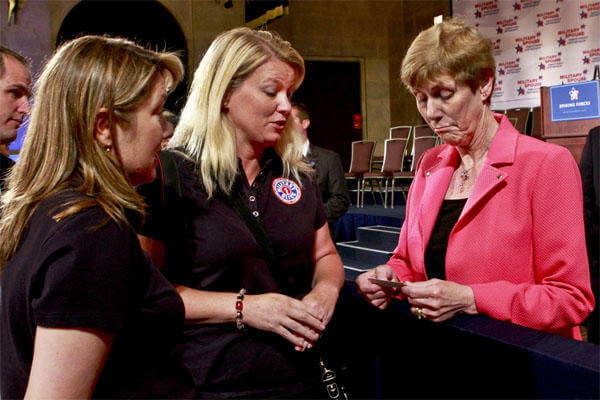Job seekers interested in working for the federal government can be turned off by the federal application process, but if you persist, you'll discover some similarities to looking for a job in the private sector.
Follow these 10 steps to make your government job search more manageable; just be sure you know what you may need to do differently to land a job with Uncle Sam.
Step 1: Network
- Similarities: In both sectors, networking initially can be more about gathering info, contacts and leads than getting hired.
- Differences: First-timers may feel stumped when trying to locate federal employees to contact. Ask around and persist. Look in your neighborhood, church, ski club, etc.
Step 2: Become Familiar with the Hiring Process
- Similarities: Whether you're going private or fed, you'll need to figure out who to work for, relevant job titles, appropriate salaries and where to apply.
- Differences: Understanding the hiring process for a federal job requires a little more research on your part, because job postings often seem to be written in each agency's own unique language. You can learn more about federal agencies at military.com/government and at FirstGov, as well as about obscure job titles at USAJOBS' Explore Your Career Opportunities page.
Step 3: Look for Openings
- Similarities: Today's savvy seekers look to the internet for the latest job postings.
- Differences: Rather than searching numerous company websites and job boards, aspiring federal employees have the benefit of one-stop shopping: USAJOBS, a website of the U.S. Office of Personnel Management.
Step 4: Assess Your Soft Skills
- Similarities: Soft skills are your personal qualities, such as being flexible, resourceful, resilient, etc. Determine your soft skills and then play them up to stand out.
- Differences: In the public sector, soft skills are called core competencies (CCs). When the human resources department reviews applications, the CCs are heavily weighed in determining who deserves an interview. Agencies occasionally reconsider the CCs they're seeking, and some feature them on their websites.
Step 5: Analyze Keywords in Announcements
- Similarities: To strengthen your resume, it's wise to scrutinize listings for the language of the job, as well as required skills.
- Differences: Keywords tend to be in the Duties, Qualifications and KSA (Knowledge, Skills and Abilities) sections of federal announcements. Sixty percent of federal announcements call for electronic resumes, and more will soon. E-resumes, scored by computer, make including keywords essential.
Step 6: Create Your Resume
- Similarities: Time invested in constructing a strong resume is a good investment.
- Differences: Federal resumes demand more detail and run 3-4 pages. The feds often ask you to include Social Security numbers, addresses and phone numbers of supervisors from the past 10 years. Look for specific directions in the announcements.
Step 7: Write Your KSAs and Cover Letter
- Similarities: Identifying your hard skills, those you've developed at work or school, is a vital part of job searching. You should highlight these skills in cover letters and during interviews.
- Differences: When applying for federal jobs, you need to submit KSA statements along with your resume and cover letter. KSAs are all about hard skills.
Step 8: Apply for Jobs
- Similarities: Finding an actual job you want to go for can be both exhilarating and nerve-racking.
- Differences: Application processes vary in surprising ways from agency to agency. This is where some frustrated first-timers drop out. Stay sane by reading the vacancy announcements very carefully.
Step 9: Follow Up on Your Application
- Similarities: Phoning in to check on your application's status can strengthen your position in the game.
- Differences: Following up is even more critical in government. One reason is that announcements are sometimes dumped and reissued. If you don't call, you'd never know to reapply. Leave a strong voice-mail message 30 days after submitting your application package.
Step 10: Interview for the Job
- Similarities: In both worlds, success occurs when strong preparation and opportunity meet. So prepare well.
- Differences: In the federal market, an invitation for an interview usually appears in writing, via a letter or email. Your interview could be in person, before a panel or over the phone. Situational interviews (i.e., how would you handle this?) are popular.
Find the Right Veteran Job
Whether you want to polish your resume, find veteran job fairs in your area or connect with employers looking to hire veterans, Military.com can help. Subscribe to Military.com to have job postings, guides and advice, and more delivered directly to your inbox.











